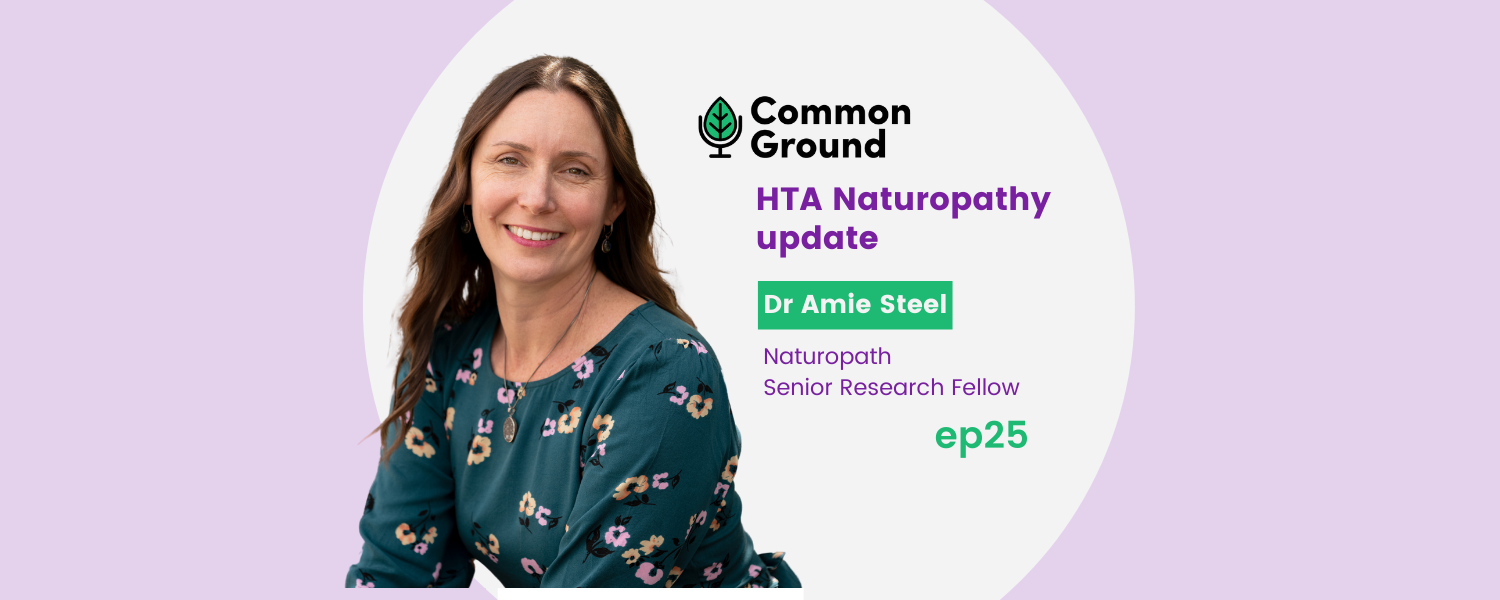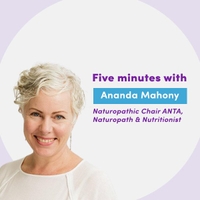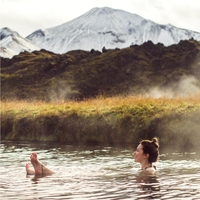
Listen on Amazon music | Apple Podcasts | Google Podcast | Spotify
Transcript
Jacqui Fahey (00:06): Welcome to Common Ground, a podcast series discussing new research and interesting projects in the field of complementary medicine. Hello, my name is Jacqui Fahey, Head of education at vital.ly
vital.ly is a digital platform, a health professional resource, and a distribution service all in one.
Firstly, I'd like to begin by acknowledging the Gadigal people of the Eora nation as the traditional custodians on the land on which we gather here. I would also like to pay my respect to their elders both past, present and emerging.
Today on Common Ground, I'll be discussing a potentially game changing piece of research with Dr. Amie Steel. Dr Amie Steel is a naturopath and Senior Research Fellow at the Australian Research Centre in Complementary and Integrative Medicine, University of Technology Sydney and is ranked Australia’s #1 Complementary Medicine researcher. She holds editorial appointments for a number of journals, has authored over 250 peer-reviewed publications, and edited three special journal issues and three research books. Her methodological interests encompass mixed methods research, implementation science, knowledge mobilisation, applied health services research, and practice-based (pragmatic) clinical research.
Welcome to Common Ground Amie.
Dr Amie Steel (01:23): Thanks Jacqui, it is lovely to be here.
Jacqui Fahey (01:25): Thank you. Amie, what is the HTA and how did this project come about?
Dr Amie Steel (01:32): Well, the HTA, that's it's an acronym for the Health Technology Assessment (HTA). It's actually a format that is used is to summarise information about any kind of health intervention to primarily communicate with governments to help inform their decision making. So there's been an established protocol of how to put those together and the format that they go in. It was originally designed actually for pharmaceutical interventions. And anytime they want to look at maybe funding a new pharmaceutical through the PBS in Australia, they put a health technology assessment together to understand the effectiveness of it and its economics and safety, all those kinds of things. That model has been adapted now to encompass any kind of health intervention that might be used within a health system and we're starting to use it now within whole professions that have not yet been fully adopted, such as naturopathy. So that's what a health technology assessment is. What was the other part of your question?
Jacqui Fahey (02:40): Yes, how did this project come about?
Dr Amie Steel (02:43): It came about because through the World Naturopathic Federation (WNF) conversations with the World Health Organization, it became really apparent that a lot of governments didn't actually have good information to really understand naturopathy and understand how they can use it most effectively in their health system. And there wasn't really any one good source to go to, to get that information if they wanted to, even if they were presented with, have you considered naturopathy when it came down to it where they went to get the information, even for us as a profession, our information, we didn't have a good handle on where all that information was. So we had to go through this process of pulling together everything. It’s like an encyclopedia, a bible of all things naturopathy for an outsider. That’s what it's really about.
It's like, if you want to know what we are, what we do, why we do it, what the evidence is, everything else, how might I be able to use this? how we're regulated, everything you want to know, it's all in this book. And that's the idea of the HTA. So it was put together with that in mind, with the idea of helping decision makers better make use of Naturopathy and for us to then be able to step into our full capacity to work within a health system and all the countries around the world.
Jacqui Fahey (03:59): Wow. Fantastic. And so why is it so important to our naturopathic profession and organisations and institutions?
Dr Amie Steel (04:08): Well, the HTA is important because there is so much misinformation out there and it's important because when representatives of our profession are speaking with decision makers, there's a high level of expertise required to pull this information together and it's a huge amount of work required. We are often caught on the back foot, previously when people were saying, is there enough evidence for naturopathy or anything like that? And we've pulled all sorts of information together that even we, as the lead co-ed lead editor team didn't know, we had no idea there was that much data and that much information available around the profession. And so what it means is that when we walk into a meeting with a government official, Department of Health, anywhere like that, not only can we......and It's a big book too, it's 750 pages, 41 chapters, it's hard copy, it's a big book. It's a book big as some of your science textbooks you would've used when you were studying your degree. And you put it down on the table, like a big wack, here is the evidence of what naturopathy is and what it does.
Jacqui Fahey (05:24): Who was involved in this assessment?
Dr Amie Steel (05:29): Well, there's the three co-editors, so that's Iva Lloyd who's the president of the WNF, she's in Canada and myself and also Professor Jon Wardle from the National Centre of Naturopathic Medicine at Southern Cross. And so that was the three of us working as co-editors but you know, there was 51 naturopathic doctors from 11 countries across 5 world regions who contributed to the chapters of the HTA.
Jacqui Fahey (05:57): Oh, wow.
Dr Amie Steel (05:58): And in addition, we had 60 individuals from another from 22 countries who reviewed sections of the HTA as well. So there's a lot of a global effort from the naturopathic community. And whilst us co-editors, you know, we led it, we coordinated and did a huge amount of work on it. That was very much supported and a huge amount of contributions from naturopaths and naturopathic community everywhere. It's truly a global document.
Jacqui Fahey (06:29): Oh that’s fantastic. And were there any key findings that stood out?
Dr Amie Steel (06:34): Oh, look, some of them are that aren't that key, like, so wouldn't be that surprising for the profession.
Jacqui Fahey (06:42): Right.
Dr Amie Steel (06:43): You know that we describe what their naturopathic philosophies and principles are but there are also some really useful things as well. Things like the naturopathic profession has existed as a distinct healthcare system for over a hundred years, it's actually practiced in over a hundred countries. And there are more than 110,000 naturopath and naturopathic doctors globally. 34 countries have some sort of statutory regulation for the naturopathic workforce.
Jacqui Fahey (07:12): Right.
Dr Amie Steel (07:13): And there's over 130 courses, naturopathic programs in the world, five and a half million patients visit a naturopath per month.
Over 100 naturopathic community clinics provides support to underserved or low income populations and more than 20 naturopathic research centres. And probably the second half, it's one section or two sections but it makes up a huge proportion of the book, well, the whole book is based on over 200 peer reviewed articles. Our profession has produced over sorry, 2000 peer reviewed articles since 1987.
Jacqui Fahey (07:55): Right.
Dr Amie Steel (07:56): So, you know, the idea that there's not a lot research associated with naturopathy is not well supported. The evidence suggests to the contrary. Now those 2000 peer reviewed articles encompass literature reviews and you know, all sorts of articles. You know, a lot of the survey work that I've done which has absolutely you know, the backbone for lots of the chapters in the book but for the clinical research, we have over 300 clinical studies that have been published as well in a hundred different illness populations.
Jacqui Fahey (08:36): Oh, brilliant. Wow.
Dr Amie Steel (08:38): So it's now that they, again there's various scales and sizes of studies ranging from case reports up to randomised clinical trials. Within all of those though, more than 80% looking at some kind of effectiveness of naturopathic practice therapies or whatever, found at least a positive outcome, and at least one primary secondary outcome measure. So people can't keep saying, there's no evidence.
Jacqui Fahey (09:04): Yes that’s right.
Dr Amie Steel (09:05): The problem that we have as a profession, is because we have such a primary care role, we treat so many different conditions and we have so many pieces that we draw on, that building up the level of robust evidence that we need for each and every one of those is, that's a lot of research effort that is needed.
So, you know, we might find treatment for one autoimmune condition using a herb or whatever it might be. But you know, maybe we want to look at it from a nutritional point of view or whatever. One of the other things that's really interesting I think about the studies is they do such a good job of reflecting the naturopathic viewpoint. And so there's actually not very many studies at all that have just taken one therapeutic nutrient or herb or anything and only use that one thing in a trial.
Jacqui Fahey (10:03): Okay.
Dr Amie Steel (10:04): So many of them have got, you know, at least a mix of herbs or a mix of nutrients or in a lot of cases, you know, it might be a hydrotherapy practice with a dietary change attached to it. You know, it's our complex thinking around how we treat conditions and how we understand treatment is reflected in these clinical trials. And I think that's a really great, that's one of the really great examples. And one of the reasons why only clinical studies that we've included in the HTA, are clinical studies produced by, with a naturopathic researcher on the research team. So, you know, this is not a summary of all the herbal medicine research ever produced, all the nutritional medicine research ever produced, all of the dietary and lifestyle interventions ever produced because that would be insurmountable and also would actually dilute the contribution of the naturopathic profession because it actually has been used historically by people to dismiss naturopathy and our approach in our view by saying, “but that's not actually naturopathy”. So by bringing it down to saying, okay, we have whole sections in each chapter in our sections that summarise all the literature reviews and other work that we have done as a profession to summarise this additional research that's being contributed by other areas of health. So we have still showcased that but the real focus is that, this is the work that's produced by naturopaths and not only does it show the evidence of what we do, it shows how we approach thinking about treating these conditions. And there's pretty much no herbal medicine study at all that uses only a single constituent. There's just, that's just not a thing. There's not anything that you can use a single herb.
Jacqui Fahey (11:55): Yes, yeh. You made a good point with the naturopathic viewpoint, it's that holistic approach, isn't it? Which you've encompassed here. And how long has this project has taken?
Dr Amie Steel (12:08): Well, I think the idea to start the HTA was about five years of ago. Then there was a lot of background work that we wanted to do around that. The first third or the first section of the HTA is a lot of description of the profession and we needed to collect data around that. And so rather than just kind of piecing things together from the bits and bobs that that was already done, I worked with the WNF to do a number of surveys and some of your listeners may have contributed to those surveys as well. And so those surveys went out through all the WNF member organisations and so that's in Australia, that's the NHAA and CMA.
Jacqui Fahey (12:56): Ah yes, yep.
Dr Amie Steel (12:57): That went out through all, and we used that data as a baseline. So that, that was started about three years ago. Once we kind of mapped out what we were going to do, we started collecting this data. We also had the work involved actually to identify the naturopathic studies also had to happen in that time. And that was a huge difficult body of work that needed to be done because what we did find in those naturopathic studies there's only 10% of them specifically mentioned naturopathy anywhere in them, even though there were obviously studying naturopathic intervention. And there's lots of reasons that we kind of understand from that, you know, we have to deal with publication bias from editors and those kinds of things. So there's other reasons that might explain that, but it just meant in order to find the papers we actually have to search via the researchers, rather than your usual literature search that you'd use, you have to find all the naturopathic researchers then we find all the papers that they publish, pull all those together.
Dr Amie Steel (13:56): And then we have over 2000 publications, we had to sort and filter through to kind of figure out which ones were the clinical ones and had to categorise and code all of them to and analyse them. So there was a huge amount of background work that was done and then we got to a point, we had all the papers and that was about two years ago and that's when we started bringing in our other co-editors and authors, sorry, we already had the co-editors, the other authors with the collaborators of the different chapters. We found specialists who, or people who had special skills, topics, expertise in the different conditions or therapeutics that were being summarised in each chapter. And we, we kind of gave them, these are all the clinical studies on autoimmune illness. Can you please summarise, these are all the ones in herbal medicines. Can you summarise them. So that was that was about two and a half years ago. And then we've kind of been working through the process since then.
Jacqui Fahey (14:45): Wow, and is this the first of its kind?
Dr Amie Steel (14:48): Absolutely. There has been the Lin report which is a HTA assessment. So that was a report that was done in 2005 to investigate naturopathic registration potential for registration of naturopathy in Australia. So that is a HTA but nothing like this and nothing global.
Jacqui Fahey (15:13): Yes.
Dr Amie Steel (15:14): And other complimentary medicines, like anthroposophic medicine have done a HTA, the Swiss report for homoeopathy was a HTA. So others have attempted it. But what we definitely have, which is different to, say, anthroposophic medicine, is we had this massive amount of clinical research. I think they have maybe 50 or something studies in their book and we've got, you know, 300 plus, you know, plus all the 300 clinicals studies plus all the others. So it was the amount of work was just as, you know, unmatched really.
Jacqui Fahey (15:48): Yes, by sounds absolutely, 750 pages just wow. And so is this a document for members of the public and the language that they can understand or is this mainly sort of for government to review?
Dr Amie Steel (16:01): Well it is in the sense that you can't write anything for government that's not written for the general public because most government officials, particularly public servants, but definitely government ministers, that they'll be coming in, they get moved around and between government departments and you know, they’re not trained in health or it's very rare for them to have any kind of training in health and so it has to be written in a way that's for the general consumer to understand.
Jacqui Fahey (16:30): Right.
Dr Amie Steel (16:30): And we've got a particular format as well, every single section and every chapter, and the book itself, there are lots of highlighted dot points, executive summaries scattered all the way through the book because we know that it's going to be a rare person that's going to read this book back to front. Most people are going to flick to it to find the information that they need, and we want that information to be foremost.
Jacqui Fahey (16:55): Yes.
Dr Amie Steel (16:56): So one of the things that we did, we had it externally reviewed by another, well they're written in, Annalies Carlton externally reviewed it as someone who was actually working in government as a public servant in a health workforce department and so she externally reviewed it. We had another external reviewer who used to work in a senator's office as a support for a Senator, and a third one that works for another professional association and is speaking to government to this all the time within another health profession and what came, one of the really great things that came back from that was we actually completely inverted all of our chapters on static and research evidence. In fact, all of our chapters, we had we were writing them like a research paper where they really, you know, introduction, methods, results, sort of conclusion structure, and we just switched it all around. So it starts with the finding.
Jacqui Fahey (17:49): Right.
Dr Amie Steel (17:50): And then if they want to read more about how we, what we did, and then what we found, they can kind of read more from there, but it's everything, it's like written like a news article. So it is designed that the general consumer can pick it up and read it and get something out of it of value.
Jacqui Fahey (18:06): And, and so how does one obtain a copy of the HTA?
Dr Amie Steel (18:09): Well it's currently free to download from the WNF website as an ebook. If you want a printed copy, maybe reach out to the NHAA because they're managing printing and distribution in the Western Pacific.
Jacqui Fahey (18:22): Okay. Yep.
Dr Amie Steel (18:23): They actually provided a significant amount of financial support to make this happen and that was primarily around getting our research support that we needed for managing the administration, the project administration, they did an amazing job of providing that support and they're coordinating all of that for the region. So it was a gift that they've given to the global naturopathic profession.
Jacqui Fahey (18:48): Absolutely. And Amie, is there anything else that you'd like to share today?
Dr Amie Steel (18:53): Oh goodness.
Jacqui Fahey (18:55): You've shared quite a bit, that's very insightful what you've shared. Thank you.
Dr Amie Steel (19:00): Oh, look, I just hope people, I think whilst it's written for government, I think it will be incredibly useful for the profession. I think I've learned a lot about at my own profession in being involved in this book, the amount of research we have around hydrotherapy, I had no idea.
Jacqui Fahey (19:16): Right.
Dr Amie Steel (19:17): The Indians have been cleaning that up.
Jacqui Fahey (19:20): Wow, okay.
Dr Amie Steel (19:22): We certainly have a lot more on herbal medicines but you know that's a really great thing, but also just the first section that just describes the global naturopathic profession, the different regulatory frameworks that there are, the different practice behaviours of the different countries, those sorts of things that I think that it would, it really helps, so we get this is part of what's happening through the World Naturopathic Federation is we're starting to realise how much we are part of a global profession and there's so much more. Of course there's differences based on training and regulatory stuff that, that influences how practice happens on the ground in countries. But there is so much similarity.
Jacqui Fahey (20:07): Right.
Dr Amie Steel (20:08): You know, and I think it's colleges and schools who are teaching naturopathic programs who will benefit from having it in their libraries and having the students having access to it. And as I said, it's free and so use it in your curriculum, use it to kind of describe our different theories and philosophies and all of those chapters and sections have been peer reviewed by representatives from all of the member organisations in the WNF. So this is a globally agreed definition and description of what our philosophies, principles, and what you have, are. So it's a, I think, it's really useful for the profession to just use it, to understand more about how things are done around the world and the different places that's happening in. I mean, we've got members in Slovenia and the Democratic Republic of Congo, and you know, it's just, people have no idea how big and far reaching what we do is and I think once we understand that we can use that information to have better conversations with people about who we are and what we do.
Jacqui Fahey (21:13): Yes. And, you know, inspiring for and informative for members of the public and also for practitioners, you just naming those countries, that's inspiring to hear, that's encouraging for our profession.
Dr Amie Steel (21:28): Yep. And I think you know, it'll be a rare member of the general public who might download their book and look at it themselves but the information in it is definitely something that individual practitioners could use to put into summary documents or social media information or what have you, to share with their general community as well.
Jacqui Fahey (21:51): Fantastic. Amie, thank you so much for sharing some very inspiring information about the HTA today on Common Ground.
Dr Amie Steel (21:59): That's all right. Thanks for having me along Jacqui.
Jacqui Fahey (22:01): Thanks for tuning into this episode today. We appreciate your support and feel free to leave us a review. We'd love to hear from you. Thank you.
Download the book here from the World Naturopathic Federation






